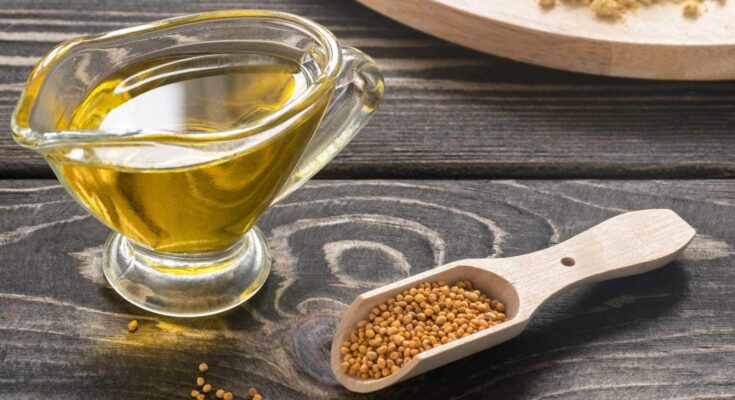It is normal to get itchy ears, or end up with water getting trapped in the ear while showering, or even ear mites due to ear wax. For all these ear issues, our grandmothers and mothers often advise putting oil in the ear. In Indian households, using mustard oil to treat minor ear issues is a frequent practice. In fact, castor oil is another popular home remedy for ear infections that is used to alleviate symptoms in addition to mustard oil. But how safe are oils to clean ears?
To find out, Health Shots got in touch with Dr Samudrika Patil, Clinical endocrinologist at Vedicure Healthcare and Wellness, and Dr Pooja Bhingarde, Senior Ayurveda consultant, Vedicure. Here’s what the doctors have to say about it.
My mother’s go-to remedy for ear irritation is to put a few warm drops of mustard oil inside the ear. From my personal experience I have also found relief from this home remedy and there were no side effects. But it’s crucial that we confirm the facts.
Is mustard oil okay to put in your ear?
Dr Bhingarde says, “Mustard oil has antibacterial and anti-inflammatory properties that cures basic elements such as infection of the ear. Additionally, it softens the ear wax and helps the ear wax to puff up. After this, it can be easily removed. So, you can use 5 drops in each ear to maintain the health of ears. However, people having ear issues should consult a doctor first before putting oil in ear.”

Is it safe to use castor oil to clean ears?
Castor oil can do wonders for your ears. It is extremely safe when you put it in the ears as it is a laxative and lubricant that allows removing excess wax and infection from the ear. But, avoid ingesting this oil as doing so can invite various health problems.
Also, read: Ear wax: To clean or not to clean?
Dr Patil says, “You need not worry as castor oil is loaded with antiviral, anti-inflammatory, and antibacterial properties that can help to deal with fungi and bacteria. Castor oil helps to restore the function of the cell inside the ears. You will also be shocked to know that it can help overcome issues like cochlea.” But, ask your doctor before putting castor oil in the ear.
Apart from them, you can try these 7 home remedies to get rid of ear itching or infection:
1. Warm compress: To alleviate the pain or control itching, try a warm compress for the affected ear after consulting the doctor. This can help to clear out congestion, loosen fluid from the ears, and soothe any ear pain.

2. Cold compress: Without any hesitation, you can choose to use a cold compress to treat the infection. Ice packs can assist to relieve ear pain and possibly prevent infection-related inflammation.
3. Tea tree oil: Antibacterial, antiseptic, and antiviral characteristics are among the therapeutic benefits of tea tree oil. It can rapidly relieve discomfort by reducing itching and pain.
Also, read: This is the right way to clean a baby’s eyes, nose and ears
4. Basil juice: Another natural cure is using basil juice on and around the affected ear. See that the juice should not go into the ear canal. It is best to treat minor infection or itching.
5. Garlic: “Garlic has antibiotic and pain-relieving properties and it can help you to get rid of ear itching and infections. Try to soak crushed garlic in warm olive. Strain the garlic out and then gently apply the oil to your ear canal,” says Dr Patil. Ta da, you will be able to get rid of itchy ears.

6. Apple cider vinegar: It offers a wide range of therapeutic qualities, including antibacterial and anti-fungal qualities. It can therefore treat infections and combat fungus that might cause ear infections.
7. Aloe vera gel: Put some drops of the aloe vera gel in the ear to reduce irritation, swelling, itching and treat ear infection.
Source link




